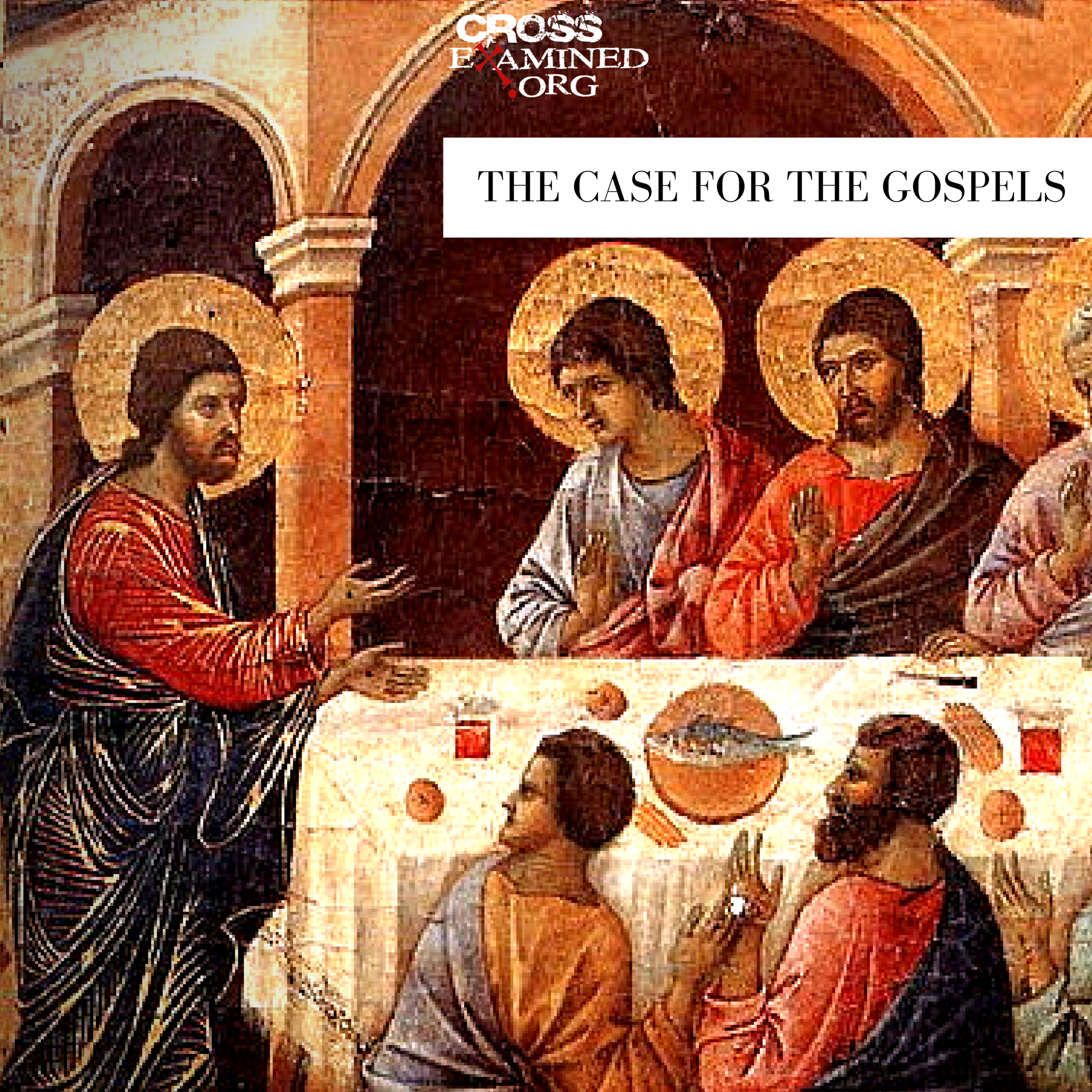Biblical Judgment in a “Don’t Judge Me” World
“YOU SHOULDN’T JUDGE.”
Once upon a couple of years ago, there was a wildly popular book written by a self-professed Christian author. It was released by a Christian publishing house and marketed on Christian platforms and websites. It was a fairy tale come true. Crushing it at the top of The New York Times Best Seller list and winning the hearts and minds of millions of women, it was featured in countless small group Bible studies and conferences nationwide.
The only problem is that the core message of the book is the exact opposite of the biblical Gospel. So, I decided to write a little review of it and post it on my blog. I didn’t anticipate this “little review” going viral, nor did I predict the boatloads of hate mail that would sail into my inbox in the following weeks.
Some of the emails cannot be repeated in polite company. But the bulk of the pushback can be distilled down to three fateful words: “You. Shouldn’t. Judge.”
The message I received loud and clear was that it was wrong of me to criticize unbiblical ideas in a popular book. After all, Jesus would never be such a “McJudgypants.” With love redefined to mean the affirmation of a desire or an idea, it’s easy to see how “judging” has become the unforgivable sin in our culture.
But Christians live by a different standard than the world. When someone says, “You shouldn’t judge,” they are actually contradicting real love, the Bible, and plain common sense. So, the next time someone pulls out this particular conversation-stopper, remember these three things:
SAYING “DON’T JUDGE” IS NOT BIBLICAL.
It seems like everyone’s favorite Bible verse (at least when they’re trying to keep someone from telling them they’re wrong) is Matthew 7:1. The words, “Judge not, that you be not judged,” come from the lips of Jesus himself.
Mic drop. End of conversation—right?
Well, that only works if you scribble out the next six verses, along with some other things Jesus said, and a good portion of the New Testament. In fact, just after saying, “Judge not,” Jesus lets his audience know that when they judge, they should be very careful to make sure their judgment isn’t hypocritical. “First take the log out of your own eye, and then you will see clearly to take the speck out of your brother’s eye,” Jesus instructs in verse five. In other words, don’t point out a sin in your sister’s life before you confront the bigger sin in your own.
But the whole point is to help your sister take the speck out of her eye, which requires you to judge that it’s there. So, Jesus isn’t saying that it’s always wrong to judge. In fact, verse six tells us to “not give dogs what is holy, and do not throw your pearls before pigs.” How can one identify “dogs” and “pigs” unless they first judge correctly?
JUDGE THE FRUIT
If there is still any confusion, just a few verses later, Jesus tells us to recognize wolves, or false teachers, by their fruit. Again, this requires us to judge whether or not these teachers are speaking truth or deception. Then, in John 7:24, Jesus couldn’t say it more plainly. He directs his listeners to “not judge by appearances, but judge with right judgment.”
Later, in Matthew 18:15–16, Jesus gives instructions about how to confront a fellow believer if they’ve sinned against you. (Don’t forget to take the log out of your own eye first!) The apostle Paul echoes this sentiment in Galatians 6:1, by telling Christians how to handle a brother who is caught in a sin. He writes, “You who are spiritual”—think log-less in the eye—“should restore him in a spirit of gentleness.”
In 1 Corinthians 5, Paul tells the believers in Corinth that it’s actually their job to judge other believers. He writes, “What business is it of mine to judge those outside the church? Are you not to judge those inside? God will judge those outside.”
Telling someone they shouldn’t judge is not biblical. In fact, Scripture actually commands us to judge, but to do it carefully, rightly, humbly, and without hypocrisy.
SAYING “DON’T JUDGE” IS NOT LOGICAL.
Imagine you are home alone and your doorbell rings. You peek through the window and observe a very large man with a gun in his hand, wearing an orange jumpsuit. He’s sweating and looking around nervously. Be honest. Are you going to open the door for him? My guess is … probably not. But wait. Why are you being so judgmental? Maybe he’s not an escaped convict but simply enjoys wearing orange jumpsuits and carrying his weapon while out for a jog. Who are you to judge?
Obviously, this is an extreme example. No one would open the door for that guy. But this goes to show that literally everyone judges. We all make judgments about people every single day. It would be beyond illogical, and sometimes unsafe, to not judge.
Plus, to even tell someone they shouldn’t judge is to judge that they are judging, which is considered judgmental, which requires making a judgment about all the judging. You get the point. But that whole logical mess can be avoided by simply taking Jesus’ advice to “judge with right judgment.”
SAYING “DON’T JUDGE” IS NOT LOVING.
When I was younger, I was trapped in a toxic cycle brought on by an eating disorder. One of my good friends, an eternal people-pleaser, worked up every last bit of courage she could muster to confront me. To put it lightly, it didn’t go well. I not-so-politely invited her to stop “judging” me and back all the way off.
Nevertheless, she persisted. Her determination to make sure I was not only helped but held accountable literally changed my life. I ended up confessing my secret and getting counseling as my healing began. To this day my eyes mist with tears when I think about how much she loved me to do such a difficult thing.
According to the Bible, love is patient and kind. It’s not arrogant or rude. 1 Corinthians 13:6 goes on to tell us that “love does not rejoice at wrongdoing but rejoices with the truth.” My friend couldn’t rejoice at my wrongdoing. Had she simply ignored the “speck in my eye,” and chosen to not judge, my life could have gone down a very different path.
She judged me because she loved me. And it quite possibly saved my life. Judging with right judgment is not only biblical and logical, but it’s also the most loving thing you can do.
COURAGEOUS JUDGMENT
Culture will always have its slogans, mantras, and catch-phrases. But haven’t Christians always been countercultural? Sometimes Jesus calls us to judge each other. As difficult as it may seem, obeying his commands will keep you from being tossed about by the whims of a fickle culture. After all, that culture won’t be there for you when your life (or the lives of the people you love) falls apart from following its advice. Jesus will.
And that’s something you can rightly judge to be true.
Recommended resources related to the topic:
How to Interpret Your Bible by Dr. Frank Turek DVD Complete Series, INSTRUCTOR Study Guide, and STUDENT Study Guide
Was Jesus Intolerant? (DVD) and (Mp4 Download) by Dr. Frank Turek
Is Morality Absolute or Relative? by Dr. Frank Turek DVD, Mp3 and Mp4
__________________________________________________________________________________________________________________________________________________
Alisa Childers is an American singer and songwriter, best known for being in the all-female Christian music group ZOEgirl. She has had a string of top ten radio singles, four studio releases, and received the Dove Award during her time with ZOEgirl. In later years, Alisa found her life-long faith deeply challenged when she started attending what would later identify as a Progressive Christian church. This challenge pushed Alisa toward Christian Apologetics. Today you can read, listen and watch Alisa’s work online as well as purchase her recently published book on Progressive Christianity titled Another Gospel.
Original Blog Source: https://bit.ly/3I7p96j











